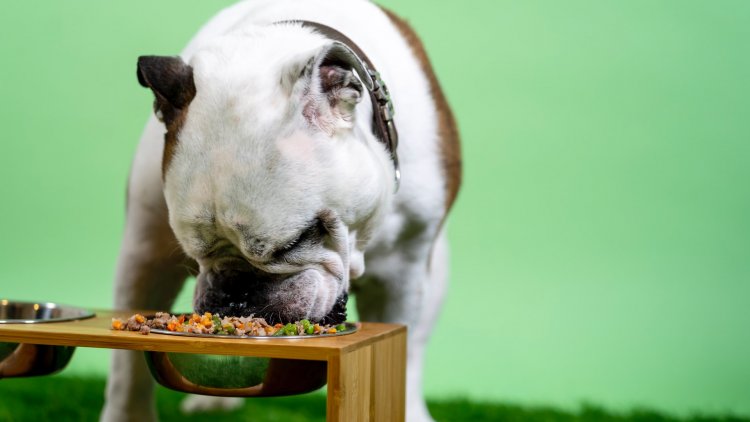Canine nutrition

Basic knowledge of canine nutrition
The dog, as is generally known, is descended from the wolf and is classified as a carnivore. Meanwhile, it is well known that the domesticated dog has evolved into an omnivore during centuries of coexistence with humans. It also has the ability to absorb and metabolize plant nutrients. Dogs are among the animals that consume stock, which means they can survive on one or two meals each day. Because they normally eat a lot at once, it's best to allow the dog some time to recover after the meal. This is especially crucial for young animals, since running around madly with a full tummy can result in a life-threatening stomach torsion.
Various kinds of food
Raw food: A dog's diet based on fresh food must provide all of the required nutrients, vitamins, and minerals to the dog. It should be emphasized that to avoid deficient symptoms, the feed composition must be changed and balanced. As a result, administering fresh food is more difficult than administering ready-made meals.
Ready-made food: It generally includes all of the nutrients a dog need and is simple to feed. This is true for both moist and dry foods. Nothing should be added to any ready-made dish since its composition is balanced.
Vegetarian diet: A dog's vegetarian diet is not species-appropriate and might lead to deficiency symptoms over time. Water: Fresh drinking water in clean containers must be available to the dog at all times, regardless of the sort of food he is eating.
Puppies and young dogs' food
At first, young puppies are fed four to five times per day, then two to three times per day. The amount of food depends on the dog's size and is progressively raised as the animal gets older. Under no circumstances should puppies be "overfed." This might result in excessive growth and issues with bone formation.
Canine nutrition for adult dogs
Small and medium-breed adult dogs should be fed once or twice day, but giant breeds should always be fed twice daily. When feeding, make sure the dog isn't overfed, has a regular meal schedule, and can digest in quiet afterward.
Quantity of food for dogs
Only each dog's feeding quantity may be determined separately. A dog should consume between 2% and 4% of its body weight, according to the rule of thumb. Naturally, the amount depends on the sort of food consumed. In general, a healthy adult dog requires around 57 kcal per kilogram of body weight. Needs for food per day To begin with, you can't go wrong with this price. A sedentary dog requires less food, whereas a hyperactive dog requires more. Small dog breeds consume somewhat more than the norm, whereas older dogs consume less. During the growing phase, puppies in particular require a lot of energy. The figure is between 100 and 170 kcal in this case.
Dog food that is appropriate
Some dogs are always willing to try new foods, while others may refuse to eat anything they are unfamiliar with for as long as possible. This is understandable, but it creates an issue when a diet change is required for any reason. In general, changing one's eating habits should be done in little increments. Simply layer the new food on top of the old, gradually increasing the amount of the new food. The dog will gradually become accustomed to the new flavor and smell. It also protects the animal's body because the entire organism has been adapted to the prior diet. If the digestive tract is suddenly exposed to something he is unfamiliar with, he may have overreactions such as stomach discomfort or diarrhea.
If a dog refuses to eat for the first time, this is not a cause to visit a veterinarian. Even our canine companions sometimes have a rough day. You should, however, maintain a watchful check on your cat. If the lack of appetite persists or is accompanied by apathy, it might be a sign of an illness. Dogs will consume their own or that of other animals' excrement. In most cases, ingesting a little amount is not dangerous. Our Wuffels make an extra effort to absorb extremely delicious odors. Some four-legged buddies, on the other hand, become addicted to it. If everything is eaten, which comes into the catches, this might suggest boredom. It can also be inbred if the training to eat excrement has devolved into "Oh, there must be something very nice if I'm eating crap."
It varies a lot on the particular animal, as it always does. You are the greatest judge of what your four-legged pal tolerates and what he does not. Remember that the snacks you offer your pet as a reward or during training are nutrient-dense as well. You should therefore incorporate these in the amount of food or pay attention to treats that are low in calories, especially if your dog isn't very active.

 "
"
0 Comments: